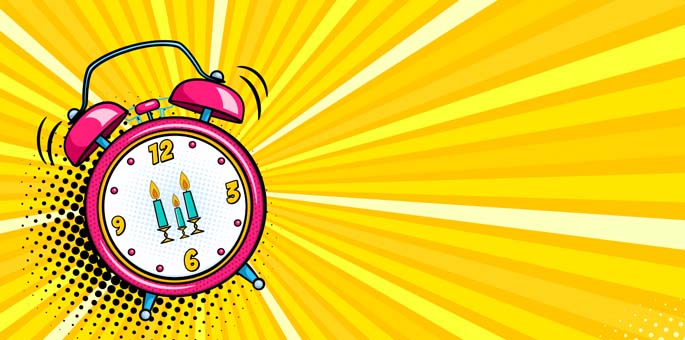By Asharon Baltazar Chabad.org
Rabbi Avraham Simcha Kaplan learned in the famed yeshivah of Mir, Belarus, and later served Safed as its rabbi.
Faint snatches of conversation floating through the tiny house caught Avraham Simcha’s attention. Although he was in a hurry to return to his studies at the yeshivah, the exchange between his elderly hosts momentarily held him back.
“Today is erev Shabbat,” he heard the wife say. “Please be back on time.”
“Of course,” reassured her husband. “I’ll do some shopping and will return home soon. Don’t worry.”
“Please don’t be late,” urged the woman.
A few hours later, as he returned from yeshivah, Avraham Simcha noticed a silhouette occupying the small, front window. It was his elderly hostess, her face lined with worry as she stared into the distance. Even when he stepped inside, she continued to look through the window, absentmindedly muttering to the glass, “Who knows what might have happened? It’s almost Shabbat, it’s almost Shabbat…”
Avraham Simcha was puzzled. “But Shabbat is still far off. I’m sure he’ll be back by then.”
The elderly woman smiled, and without looking away from the window, said, “Let me you tell you a story, and perhaps you’ll understand.”
“For many years, we were childless and felt a gaping hole in our lives. We slogged through misery every day. Finally, our prayers produced a miracle: I gave birth to a beautiful boy.
“But our troubles soon returned. We noticed that our son was growing rather slowly. Anxious, we took him to a doctor who diagnosed him with a heart defect. He suggested we travel to Vilna, where the medicine was more advanced, if we wanted to save him.
Rabbi Avraham Simcha Kaplan (1911-1989) was the rabbi of Safed for more nearly half a century.
“We set off at once and found a renowned cardiologist in Vilna. After countless examinations and tests, the cardiologist took us aside and revealed the horrible truth: There was no cure for our son’s condition; he probably wouldn’t survive for more than a few years.
“We stumbled back to our inn, biting back tears, but the moment we closed the door to our room I burst into uncontrollable wails. Imagine having to hear such news about a child you were barely blessed with!
“Suddenly, we heard a knock. It was one of the neighbors sharing our floor. They heard me crying and suggested that on our way back we stop in Radin, Poland, home of Rabbi Yitzchak Meir Kagan—“the Chafetz Chaim”—to request his blessing.
“We left for Radin and we soon stood on the Chafetz Chaim’s doorstep only to be turned away. We were told that due to the Chafetz Chaim’s deteriorating health, he wouldn’t be granting any private audiences. We felt dazed, our last hope dashed, and barely managed to keep our balance.
“But then we caught sight of a familiar face inside the house. It was the Chafetz Chaim’s grandson who had once boarded with us while learning at the Mir yeshivah. Emotionally, we explained to him why we had come, and he beckoned the three of us to enter his grandfather’s room.
“‘Why did you come to me?’ asked the Chafetz Chaim.
We repeated our story again.
“‘How can I help?’ shrugged the Chafetz Chaim, looking around his room. ‘I don’t even have the money to allow you to see greater doctors.’
“I couldn’t handle it and broke down in tears. The grandson stepped in between us.
“‘This is their only son,” he said, pointing at my boy. The Chafetz Chaim stared, his expression poignant. Then he looked at me.
“‘I would like you to welcome Shabbat earlier than usual.’
“‘What must I do?’
“‘By Friday noon,’ said the Chafetz Chaim slowly, making sure I understood, ‘the dining room table should already be adorned by a tablecloth, candlesticks, and candles. After the candles are lit at the proper time, make certain that all work ceases.’
“‘I accept,’ I said, while thinking that if he had asked me to fast for two years, I would’ve happily done that as well.
“The first signs of recovery were already apparent by the time we arrived home. My son’s condition improved from day to day, and as he began to eat healthily, he regained the much-necessary weight. Our local doctor was so astounded by our son’s recovery that he himself funded an additional trip to Vilna so the cardiologist there could witness the miracle.
“After seeing the boy’s improvement for himself, the cardiologist kept asking whether this was the same boy he had examined not long ago.
“‘Perhaps you took the boy to the doctors in Vienna?’
“‘We did not.’
“‘So who did you take him to?’
“‘The Chafetz Chaim,’ we said, swelling with pride. ‘We follow his instructions.’
“The doctor shook his head in amazement. ‘Doctors are limited to healing existent phenomena, but to create something from nothing is impossible.’”
The old hostess finished her story and turned her glance to Avraham Simcha. “Now you can understand why I so urgently await my husband’s return.”
Adapted from Sichat Hashavua #1587
Asharon has liked to write since childhood and found a good outlet for his creativity here. He currently resides with his wife in Jerusalem, where he studies in Kollel. For suggestions, critique, or just a simple hello, you can contact him via his email.
Art by Rivka Korf. Rivka uses her creativity and expertise to create masterful compositions and illustrations. She shares her love of coffee with her husband, and passes on her appreciation of art and design to her children.
